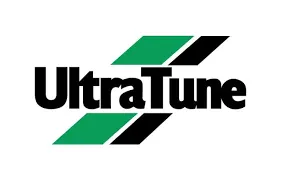Engine Diagnostics and Repair at Ultra Tune Deception Bay
Engine diagnostics and repair involve the systematic identification and resolution of issues within your vehicle's engine and related systems using advanced scanning tools and expert analysis. At Ultra Tune Deception Bay , our certified mechanics employ state-of-the-art diagnostic equipment to pinpoint faults accurately, followed by precise repairs to restore functionality. This service is vital for Australian vehicle owners, as it addresses common concerns such as performance degradation or emissions non-compliance, all delivered with transparent pricing and detailed explanations.
Book Today for Reliable Service
Why Choose Engine Diagnostics and Repair?
Proactive engine diagnostics prevent minor faults from developing into major failures, thereby enhancing reliability and efficiency. Principal advantages encompass:
Early Fault Detection: Identifies issues promptly to avert breakdowns and associated inconveniences.
Improved Fuel Efficiency: Resolves inefficiencies in fuel delivery or ignition systems, reducing consumption and operational costs.
Extended Engine Longevity: Timely repairs mitigate wear on critical components, prolonging the engine's service life.
Emissions Compliance: Ensures adherence to Australian environmental standards by rectifying exhaust and emissions-related problems.
What’s Included in Engine Diagnostics and Repair?
The process commences with a comprehensive diagnostic scan and may extend to targeted repairs based on findings. A standard engine diagnostics and repair service at Ultra Tune Deception Bay typically incorporates the following elements, adapted to your vehicle's specifications:
Computerised Diagnostic Scan:
Connecting to the vehicle's onboard computer to retrieve error codes from sensors, processors, and microchips.
Fuel Injection System Inspection:
Evaluating injectors, sensors, and fuel pumps for blockages, leaks, or inefficiencies.
Ignition System Assessment:
Checking spark plugs, coils, wires, and timing to address misfiring or starting difficulties.
Engine Cooling System Review:
Inspecting the radiator, thermostat, hoses, and coolant levels to prevent overheating.
Exhaust and Emissions Analysis:
Examining the exhaust manifold, catalytic converter, and oxygen sensors for compliance and performance.
Automatic Transmission Control Check:
Diagnosing gear shifting issues or fluid-related problems if linked to engine performance.
Electrical and Sensor Testing:
Verifying alternator, battery, and various sensors (e.g., throttle position, mass airflow) for faults.
Component Repairs or Replacements:
Undertaking tune-ups, gasket replacements, or more extensive repairs such as piston or valve work as required.
Fluid Checks and Changes:
Assessing and replacing engine oil, coolant, or other fluids contributing to engine health.
Post-Repair Testing:
Conducting a road test and re-scan to confirm resolution of issues and optimal operation.
